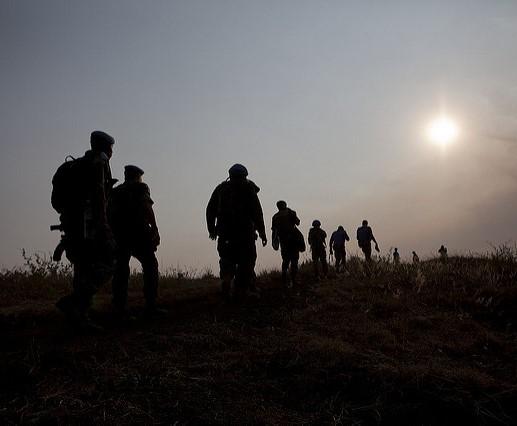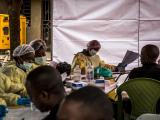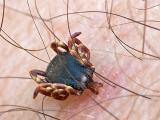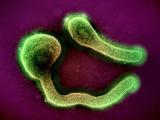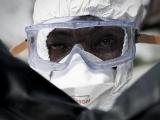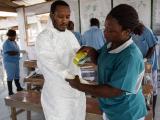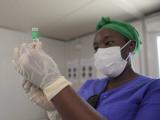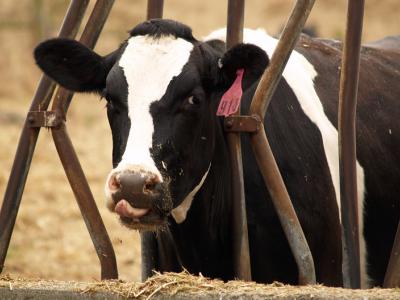A pair of violent attacks that resulted in civilian deaths were reported yesterday in Beni, one of the Democratic Republic of the Congo's (DRC's) main Ebola hot spots, as six more cases were reported in the ongoing outbreak.
In other developments, the World Health Organization (WHO) revealed new details about its investigation into a spurt of new cases in Komanda, a part of Ituri province that had not reported cases for several weeks.
ADF rebels attack civilians
Beni has been the setting for several attacks in recent months, some of which led to temporary pauses in Ebola response operations. In the latest incidents, Ugandan rebels with the Allied Democratic Forces (ADF) killed 18 civilians in two separate attacks, according to a report from Radio Okapi, a news network run by the United Nations mission in the DRC (MONUSCO) and the Fondation Hirondelle, a Swiss nongovernmental organization.
According to the report, the first incident occurred yesterday morning in Mangolikene, about 9 miles northeast of Beni, where the ADF attacked farmers in their fields, killing 13. The second attack occurred yesterday evening in Paida district in the eastern outskirts of Beni, killing 5 people and wounding 2 more.
The fresh violence comes about 3 weeks after a joint mission between MONUSCO and DRC government fighters targeted an ADF stronghold near Beni, which resulted in the deaths of 7 UN peacekeepers.
Six new cases, 2 more deaths
In its daily update today, the DRC's health ministry reported six more confirmed Ebola cases, including four in Katwa, located east of Butembo, and two in Beni. Also, two more deaths were reported, one from Beni and the other from Butembo.
The developments lift the overall outbreak total to 477 cases, 429 of them confirmed and 48 listed as probable. The fatality count has risen to 275.
Health officials are still investigating 94 suspected Ebola cases.
In vaccination developments, the health ministry said wide-belt immunization, presumably broader than the standard ring vaccination strategy, is under way in reemerging hot spots, Komanda and Mabalako health zones. Overall, 41,817 people have received Merck's VSV-EBOV vaccine since the campaign began in August.
Resurgence in earlier hot spots
In a weekly snapshot of the DRC's Ebola outbreak, the WHO said the event continues to be a "multifaceted challenge," but it is still confident the outbreak can be contained with proven steps and new tools, such as vaccines and therapies.
The agency said new cases in Komanda and Mabalako emerged after more than two Ebola incubation periods had passed with no new cases, underscoring the risk of reintroduction and the need to keep up enhanced surveillance. Komanda's cases are linked to an infection of a mother and her children in Beni.
"While insecurity in Komanda will challenge the response activities, control measures including contact tracing and vaccination were initiated soon after the detection of cases," the WHO added.
Another factor fueling some of the latest cases is inadequate infection prevention and control practices at public and private health centers, a situation known to amplify Ebola outbreaks. So far, 44 health workers have been infected in the outbreak—12 fatally—and at least one of the newly reported patients likely contracted Ebola from an infected health worker during a routine medical visit, the WHO said.
Infections in women, children
Also, the WHO addressed concerns about the disproportionate number of women and children infected in the outbreak. So far, females account for 62% of cases, and of that group 18 were pregnant and 7 were breastfeeding or had recently delivered.
The virus has infected 27 babies younger than 1 year old, and killed 21 of them. Nine infections have been recorded in newborns, and children younger than 15 years make up 24% of all of the outbreak cases.
Several factors are probably contributing to the higher burden in women and children, the WHO said, including exposure in health settings, participation in traditional burial practices, transmission within families, and differences in health-seeking behavior. A spike in malaria cases and inadequate infection control practices in healthcare settings are also probably playing a role in in high Ebola rates in children, according to the report.
See also:
Dec 7 DRC update
Dec 7 Radio Okapi report (in French)
Dec 6 WHO statement
